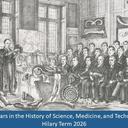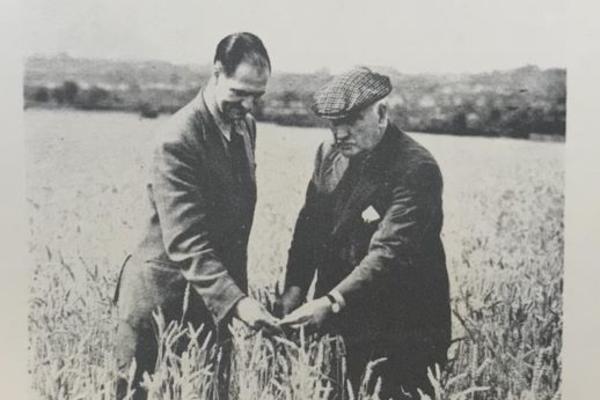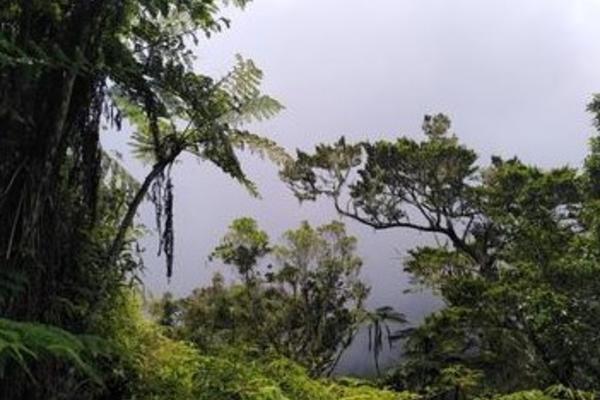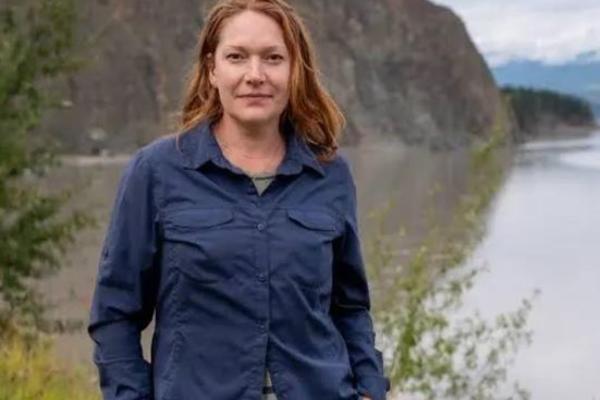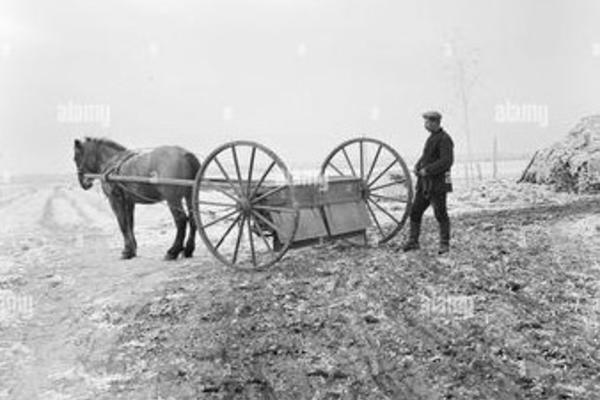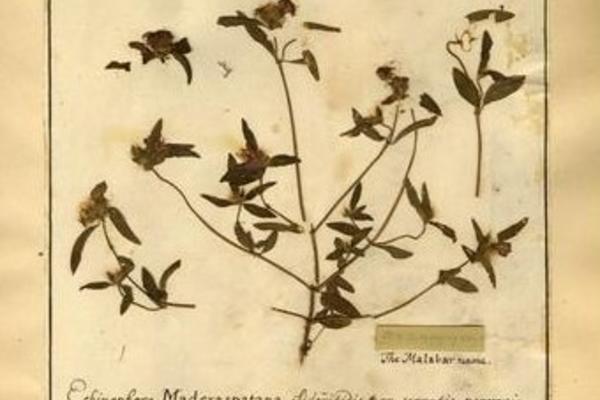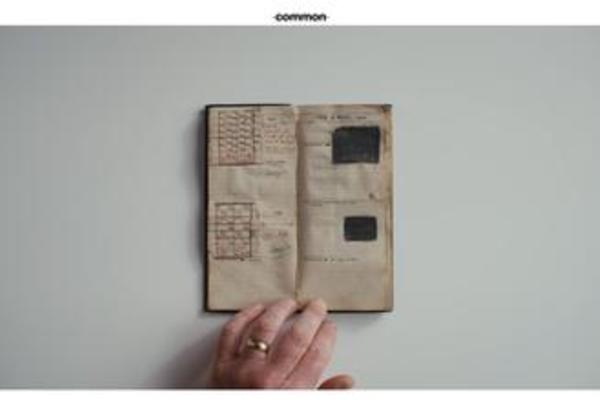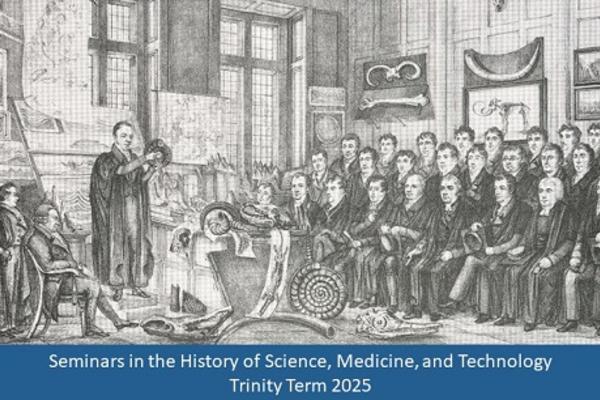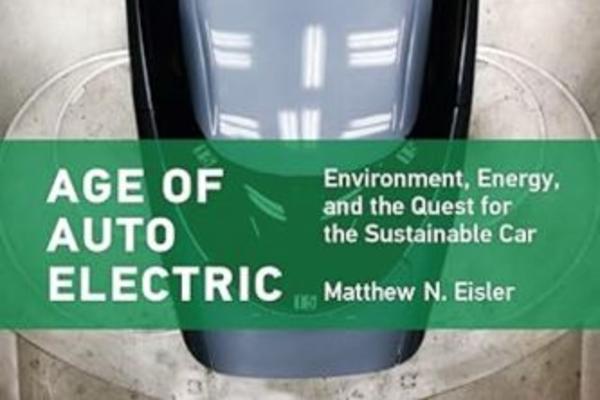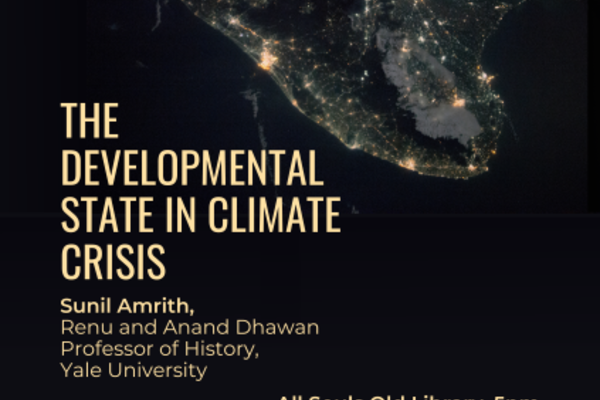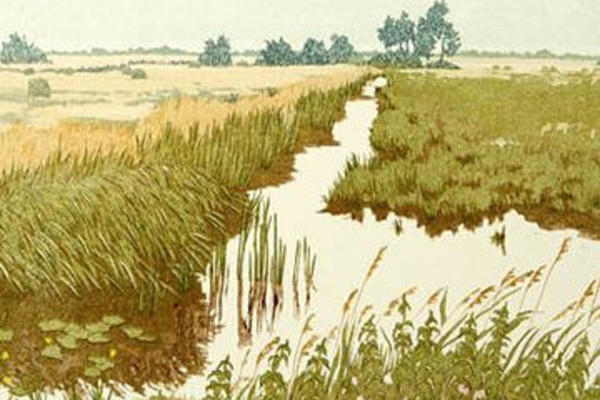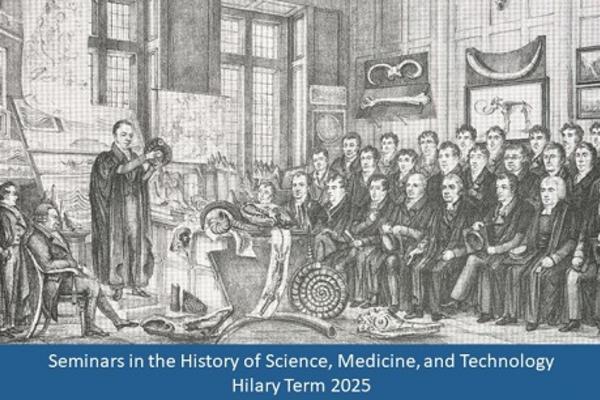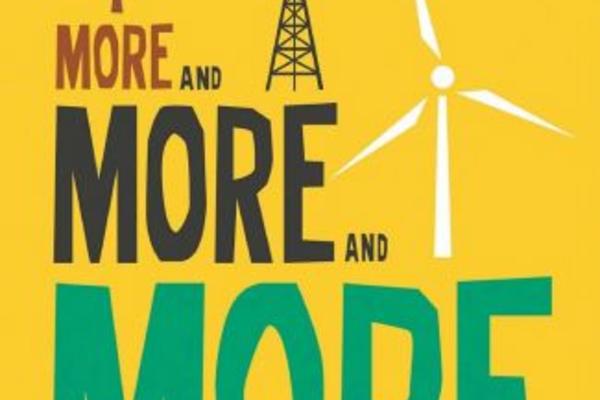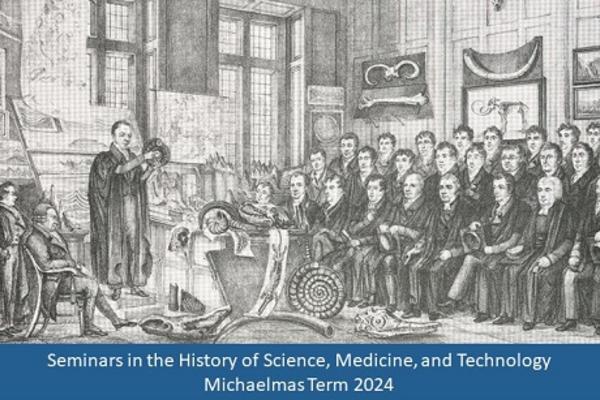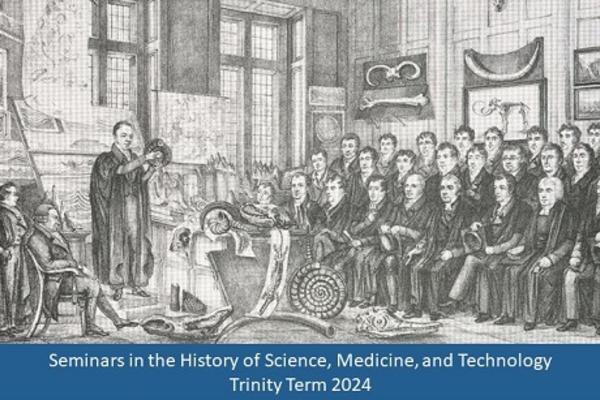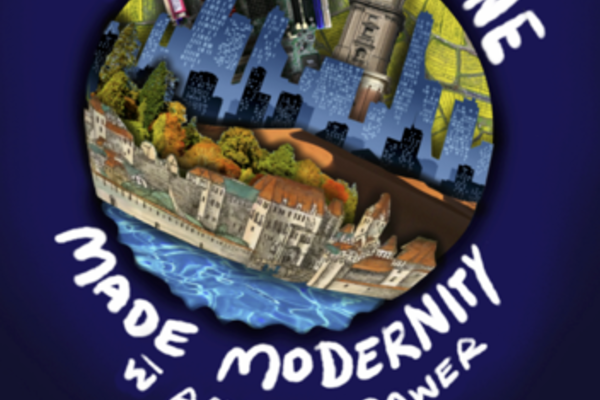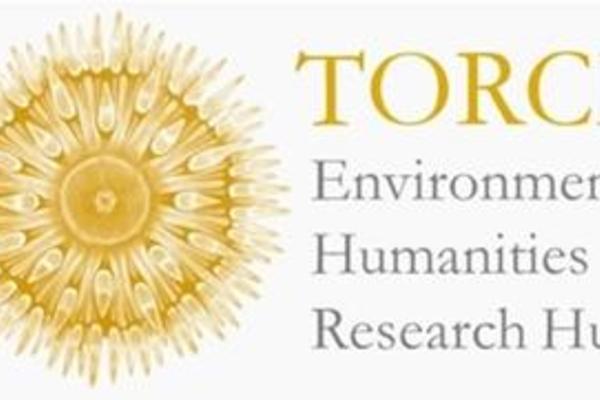Environmental History
Please follow this link to join the Oxford Environmental History mailing list
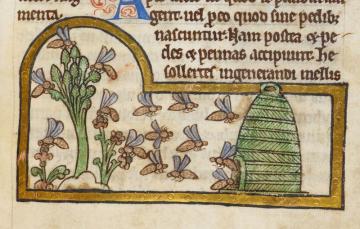
Environmental history investigates humans’ changing ecological entanglements over time. Its practitioners work over different time periods and geographical regions and draw on methodological ideas and practices from various scholarly traditions such as history, archaeology, geography, visual art and the natural sciences.
This interdisciplinary approach is what makes environmental history such an exhilarating field, yet it can also be what divides it. Environmental historians often belong to different departments and faculties, and at Oxford they are yet to share a sub-institutional affiliation. Hence, they are not always informed of relevant work done by their colleagues within the same University.
The Oxford Environmental History Network wishes to foster a virtual community of environmental historians in Oxford. The aim of the network is threefold:
- To connect researchers confronting similar conceptual and methodological challenges, even if working across different regions and time periods
- To showcase environmental history research being undertaken at Oxford and elsewhere
- To publicise relevant events and opportunities occurring both at Oxford as well as internationally
Lithic New York: Scientific Groundings of the Metropolis in the Age of Revolutions (Soils, Surfaces, Depths)
Disease and the Dead Body in Britain in the Long-Eighteenth Century
Chronic Constitutions: Experts, Disease Risks and Remaking Indian Bodies in Post Colonial India (1940-70s)
The quantification of famine in the British Empire, 1770-1801
Past Events
Reclaiming Land for the Future: Coal, Environmentalism, and Population in Post-1945 Britain
Multispecies Interactions in bridging Folk and Biomedical Knowlege: hookworm, roundworm and wormweed in Jamaica, 1913-1936
Flagship Lecture: Are the Dogs Running Today?
The Science of Why Human Excrement Matters. Pierre Leroux and the circulus
"I call them all by the Malbar name": communicating colonial flora before universal nomenclature
Filmic Humanities and Film-Making-As-Research - A Medical Humanities and HSMTE Workshop
Paths to ecological thinking: Reflections on situating social relations in energy and environmental context
Energy, Environment and Society: In conversation with Dr Matthew N Eisler
Roundtable: Geotrauma, Emergency Histories, and Sacrifice Zones: Medieval Historians in the Anthropocene
Radhakrishnan Memorial Lecture Series 2025: The Developmental State in Climate Crisis
Engineering the Environment and Imagining Nature in the Early Modern World
2025 Cressida Jervis Read Seminar - Along the Thread of the Mosquito Ovary: Apprehending Malarias Lost and Regained
Beautifying the City, Poisoning the Lady. About an Odd Victorian Scientific Conversation (1869)
Of Herbs and Pharmaceuticals: Rethinking the Rise of the Pharmaceutical Industry after the Plant Turn
HSMTE Workshop with Jean-Baptiste Fressoz - More and More and More: An All-Consuming History of Energy
Singapore pineapples: catch-cropping, Chinese capitalists, and the colonial state, 1900s–1930s
“Archives of Loss and Wonder”: Writing a History of Fossil Heritage in South Asia The Inaugural Cressida Jervis Read Seminar
Red Squirrels, Big Data, and the Birth of Behavioral Ecology
Victorian Women and Algology: The Case of Margaret Scott Gatty (1809–1873)
How Anthropocene Made Modernity
Historical research in the time of the Anthropocene: can climate data help us read the past (and, if so, how)?
Historical Perspectives on Climate, Disasters and Migration
Environmental Humanities
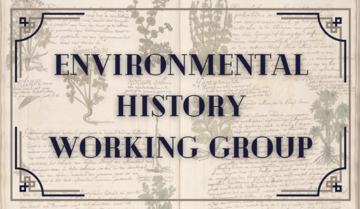
The Environmental History Working Group (EHWG) runs informal meetings for those interested in studying the past in ways that recognize the interactions and interconnectedness of animals, plants, humans, other beings, and the environment. We make space to talk about exciting developments in our fields, new ideas and approaches, and to have interdisciplinary conversations. We try to keep discussions and presentations informal, and encourage anyone at all interested in these kinds of approaches to join our meetings, regardless of research specialism or presumed existing knowledge. Our sessions are mainly attended by graduate students and undergraduates who were considering writing a dissertation or embarking on further study in the field, but all are welcome.
For further information or to join the EHWG mailing list, please email environmentalhistoryworkinggroup-owner@maillist.ox.ac.uk.
You can also find our schedule on OxTalks.
Meeting Details:
Meetings are held each term in odd weeks at the History Faculty (Schwarzman Centre, Radcliffe Observatory Quarter). Meeting details will be released at the beginning of each term.
Convenors:
Ryan Mealiffe (DPhil History) ryan.mealiffe@history.ox.ac.uk
EHWG Hilary Term 2026 Schedule
Time: Thursdays 12:30-14:00, unless otherwise stated
Meeting Location: Room 20.421, History Hub, Schwarzman Centre, Radcliffe Observatory Quarter, Woodstock Road, Oxford OX2 6GG, unless otherwise stated
Environmental History Writing Workshop
Further details to be announced soon!
A workshop for undergraduates and master’s students who are writing or considering writing essays and dissertations in environmental history. The workshop will cover some of the major themes and modes of writing in environmental history and act as a forum to ask questions to DPhil students working with diverse geographies, time periods, and approaches to the field.
Week 3 (5 February)
Niklas Groschinski (DPhil History)
Environing from Below — Supplications, Denunciations, and Other Sources for Rewriting Early Modern Environmental History
The ‘environment’ emerged as a global crisis concept after WWII. Environmental history as a field has its roots in political movements of the late 1960s and 70s. Thus, both the term and the field have had, from their impetus, a strong political and global flavour. Environmental history is still driven by approaches that are akin to the field of political ecology, i.e. based on critical social theory. Early modern environmental history often finds its raison d'être in either attempting to take on a global perspective, or in pointing out power imbalances and the centralisation of state control over natural resources. Similar binary narratives of power used to define the historical study of state-building; however, already since the late 90s, the focus here has shifted onto ‘state-building from below’, which has not only questioned previous meta-narratives but also ascribed more agency to local actors lower down the social scale. Many of the sources used by these scholars (especially supplications/petitions) can also help us take on more locally embedded perspectives in understanding that environmental interests of governments and the governed were not always binary, and that ‘commoners’ had more power in shaping the land, or ‘environing’ (Sörlin and Wormbs) from below, than has been acknowledged.
Week 5 (19 February)
Louis James Henry (PhD Medieval Environmental History, University of Stavanger, Visiting Student at KCL)
Timely Courts and Immediate Responses: Waste Management as a Temporal Issue in Late Medieval England
The leet court served as a means for medieval English communities to police themselves. It did not deal with private suits or have jurisdiction over felonies. It was concerned with misbehaviour which disturbed the public. Local officials were appointed to keep note of issues and at the annual court session, offenders would be presented and fined. Amongst the business of the leet were several environmental offences such as incorrect dung disposal, poor gutter maintenance, and illegal latrine placement. The records of these courts provide valuable insight into communal responses to the problems affecting the medieval urban environment. However, because leet court sessions were usually held annually, they can present a static image of what was a dynamic and pressing issue. When gutters are blocked, flooding can occur just as how a poorly placed latrine can pollute drinking water. These events required an immediate response and could not be left unresolved until the next court session. The court rolls record final judgements and fines but give very little detail as to what might have happened at the time of the offence. This paper examines waste management as a temporal issue in two fenland towns: Peterborough and Ramsey, between c.1300-c.1500. It seeks to shed further light on what might have happened at the moment of these crimes occurring and explore how medieval communities managed the urban environment. Utilising the records of the leet court, this paper demonstrates the use of environmental management as a means to understand the lived reality of crime and policing in medieval England.
Week 7 (5 March) **Please note this seminar will be from 14:00-15:30**
Jessica Chirboga (MPhil US History)
Burning Issues: Fire Management in Metropolitan Los Angeles, 1892-1938
In 1892, U.S. President Benjamin Harrison designated a forest reserve in the San Gabriel Mountains to protect the watersheds supplying an expanding Los Angeles. Local developers and politicians supported the reserve, believing it would curtail fires set by sheepherders and campers that threatened agricultural and residential development in the foothills of the San Gabriels. Over the course of the early twentieth century, the U.S. Forest Service and the Los Angeles city and county fire departments advanced an aggressive policy of fire suppression in Los Angeles’s mountains and canyons. Growing scientific expertise and substantial firefighting infrastructure failed to contain the year-by-year increase in human-caused fires as developers, undeterred by increasing risk, expanded into foothill and coastal areas. Drawing upon regional newspapers, the papers of local conservationists, and city, county, state, and federal records, this presentation examines how fire management practices in Los Angeles came to prioritize total fire suppression over land use restrictions and prescribed burning in fire and flood-prone communities.
People
Those listed below have an interest in both teaching and research surrounding the topic of of environmental history.


